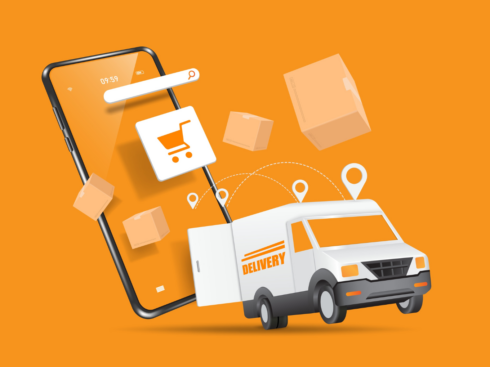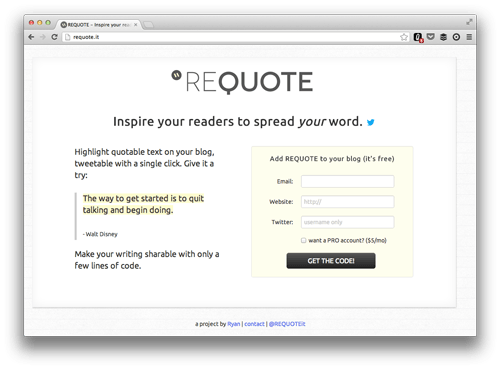
Product Hunt began as an experiment, inspired by my desire to share, discover, and geek out about new and interesting products with smart folks. The “20-minute MVP” was surprisingly well received. Turns out I wasn’t the only one that enjoyed the daily email as more people subscribed and shared it with their friends. The positive feedback and early traction encouraged me to build it into a real product so I reached out to my friend, Nathan Bashaw, and we designed and built the product over the Thanksgiving break. What started as a simple email list of 30 entrepreneurial friends and has expanded to an influential community of 9,000 and growing.
But Product Hunt isn’t a happy accident and certainly not my first startup idea. I’ve experimented with various ideas over the years and refined the qualities I look for before jumping into my next startup idea.
Evaluating Startup Ideas
We all come up with startup ideas day-to-day but choosing the right idea requires introspection and careful thought. While I’ve enjoyed experimenting and learning from various projects, asking these five questions would have saved me time wasted on unviable ideas that I didn’t really want to pursue long-term:
1. Passion
Am I excited to pursue this for several years?
Despite the perception caused by demo days or product launches on TechCrunch, startups are never an overnight success. It takes several years of building and marketing to create a prosperous business. During this time, entrepreneurs face inevitable struggles that, without passion, are incredibly difficult to overcome.
Over a year ago, I considered building “Uber for laundry.” I called it LaundryMate (I know, terrible name). As San Francisco residents know, an in-home washer and dryer is a luxury. Knowing how busy SF professionals are, I saw a need for a service like this so I created a landing page to collect email address to measure interest and start a dialog with potential customers. My confidence in the idea increased after receiving positive feedback in the service from those that signed up. A few days later I killed the project.
Despite my confidence in the problem hypothesis (busy professionals hate to do laundry and are unsatisfied with existing solutions), I didn’t want to be in the laundry business. Surprisingly, linen and the smell of freshly ironed clothing doesn’t excite me. Thankfully, I recognized this quickly before investing more than a weekend on the idea. Ironically, a year later on-demand laundry startup, Washio, launched.
Read: What drives people to startup?
2. Pragmatism
Do I have the right skill-set and team?
I fully support ambitious entrepreneurs but sometimes ambition and excitement blinds them from reality. We’re not all Elon Musk. Wise entrepreneurs evaluate their ability and team honestly.
A friend of mine once pitched an idea for a social, restaurant discovery app. The concept was similar to Yelp but with more emphasis on recommendations from friends. Let’s assume people want a more social Yelp. Even if that were true, the product must be adopted by a massive audience to become a successful business. Not to mention, it would be in direct competition with Yelp, Foursquare, and other incumbents in a crowded space. Some entrepreneurs have the experience and capital to pull this off. With upmost respect, my friend who had never worked in a startup environment, did not. Like many, he underestimated the level of effort, capital, and marketing required to succeed with this particular idea.
I’m not advocating entrepreneurs to avoid swinging for the fence but sometimes a base hit is the best strategy to score. Consider solving a “smaller” problem first and before swinging, be pragmatic, evaluate the market, and recognize your strengths and weaknesses.
3. Existing User Behaviors
Are people doing this already?
It’s very difficult to change user behavior, let alone create entirely new ones. Most successful startups leverage existing behaviors, enabling people to do something they are already doing but better or more frequently. Ev Williams articulates this best:
Take a human desire, preferably one that has been around for a really long time… identify that desire and use modern technology to take out steps.
Rarely do successful startups drastically introduce new behaviors.
- Before Instagram, amateur photographers snapped photos and uploading them to their computer to beautify them with Photoshop or similar photo-editing applications.
- Joel Gascoigne wasn’t satisfied with his current solution for sharing on Twitter and other social networks so he created Buffer, a better way to share updates and links. Joel built it for himself but also the millions of others tweeting, posting to Facebook, and sharing on the web.
- Mobile messaging app, WhatsApp, didn’t grow to 430MM active users by changing peoples’ daily behavior. Communication and desire for social connectedness is innate in all of us. The service simply made communication easier and more accessible.
Once you’ve identified an existing behavior, you have to provide a much better solution than what they’re doing today. As an active blogger, people often share my writing on Twitter, sometimes pulling quotes from the essay. But I wanted to encourage my readers to share even more by making it easier. So I created REQUOTE.
I whipped up a simple javascript script that enabled writers to highlight snippets of text on their blog. When clicked, a Twitter share prompt opened with a pre-filled message. I used it on my own blog for several months but few readers used it. It failed. People were satisfied with existing solutions. REQUOTE wasn’t valuable enough.
4. Growth Engine
How will I acquire users?
As we all know, building a great product is just part of the challenge. You also need users. Without traction, even the best products die on the vine. Go-to market and growth need to be considered on day 0.
Having a thesis for your startup’s growth and an understanding of your business economics will help identify opportunities. For example, many e-commerce companies that sell expensive merchandise, leverage paid channels such as Google Adwords or Facebook ads to acquire users and generate revenue on the direct sale. Massive growth may not be important or realistic to achieve success when each user generates hundreds of dollars in revenue.
Advertising-based businesses have a very different trajectory and require a large user base to become a big business. In part, this is why startups like Pinterest and Twitter didn’t focus on monetization in the early stages. Relative to the high-end e-commerce business, revenue per user is much lower and rely on word of mouth, press, SEO, App Store distribution, and other non-paid channels to grow.
Consider asking: How many users do we need to reach our revenue goals? Can I acquire users affordably through paid channels? What will encourage people to spread the word?
5. Monetization
How will I make money?
Turning mindshare into money is often just as challenging. In 1999, Nick Swinmurn famously conducted a “Wizard of Oz” test to prove he could make money selling shoes online. At the time, e-commerce was relatively new and it was unclear how many people would be willing to buy shoes before trying them on in-person. Before investing in a sophisticated e-commerce platform and buying inventory, he put up a simple website and hosted photographs of shoes from local stores. If people made a purchase through his online store, he would return to the shop to buy the shoes and ship them to the customer. To his delight, people bought them proving there was an opportunity to build an online marketplace for shoes. Nick’s experiment became Zappos, one of the largest online retailers of shoes.
I went through this thought exercise on another project of mine called Wall of Awesome. 2012 was a good year for PlayHaven. We were growing fast, doubling headcount within a six month period. Having seen the importance of nurturing a positive company culture, I sought to build a simple product that enabled people within the company to recognize and appreciate each others work, delivered as a weekly email digest.
I created a landing page and promoted it across my network (I had a much smaller audience at the time). Within the first week, I received over 200 email signup and far more interest than my REQUOTE project. But then I took a step back and asked myself, “How will I monetize Wall of Awesome?” I recognized how difficult and slow it would be to convert companies into a paying customers, especially when there’s little-to-no direct measurable benefit from the service. The path to revenue was unclear and I lacked the passion to sell Wall of Awesome to companies, so I ended the experiment.
New, creative monetization models may be an innovative advantage but if unproven, they may lead to a dead end. Find a way to validate those monetization ideas cheaply as Nick Swinmurn did and learn from the success or failure of similar businesses.
Before embarking on your next startup adventure, ask yourself:
- Am I excited to pursue this for several years?
- Do I have the right skill-set and team?
- Are people doing this already?
- How will I acquire users?
- How will I make money?




























